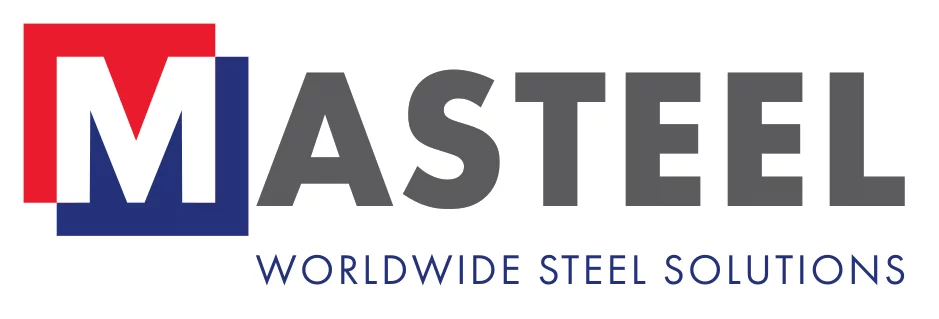Composites are materials that have been put together from two or more components. The result is a product with different properties than the individuals within the mixture; one that is essentially more than the sum of its parts. Alloys are similar, comprising at least two elements with a minimum of one metallic component. The primary difference between the two is the essential metal element of alloys, commonly iron (Fe). Composites meanwhile may be comprised of vastly dissimilar materials; for example, silicates and resinous polymers are combined to make fiberglass.
Composite steel can almost be defined as a composite of alloys. In this blog post, Masteel outlines the definition and applications of composite steels in more detail.
Outlining Composite Steel
Construction workers commonly define composite steel as a ferrous alloy profile that works in conjunction with concrete. The excellent tensile strength of the steel profile combines with the compressive strength of the concrete, vastly improving the load-bearing properties of the overarching structure. Common composite steels in construction include metal decking with concrete fillers and steel girders with concrete-embedded connectors. Such systems have proven instrumental in the construction of multi-story superstructures around the world.
This refers to steel in a composite arrangement as opposed to a composite product, however. The primary composite steel products are bimetallic plates, which are engineered by bonding two dissimilar alloy sheets together. This creates a cladding product with different mechanical and chemical properties on the interior and exterior planes.
Composite steel cladding generally comprises a low alloy steel plate backing attached to a thin sheet of a more expensive grade. This enables engineers to build durable structures and components for demanding areas of application at lower costs. For example, a carbon steel backing clad in stainless steel provides outstanding corrosion and heat resistance for pressure vessels and boilers, with lower investment costs due to the reduction of higher value materials.
Composite clad plates are ideal solutions for markets dealing with high-temperature processes or corrosive materials, with few opportunities to maximize returns on investment (ROIs).
Composite Steels from Masteel
Masteel is one of the world’s leading suppliers of composite steels for industrial and shipbuilding applications, providing unique products equipped to withstand high salinity, chlorination, high thermal cycling, and operating temperatures, and chemical attack from various process chemicals.
If you would like to learn more about our composite steels, please do not hesitate to contact a member of the team directly.

